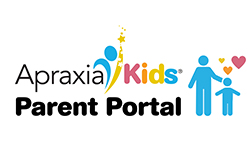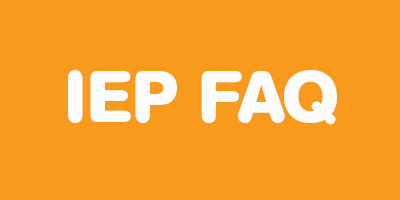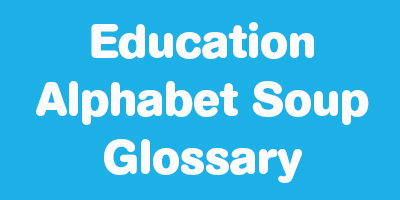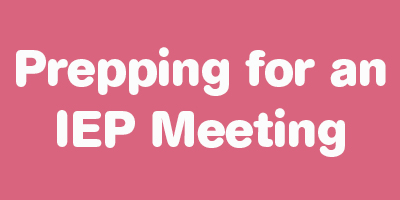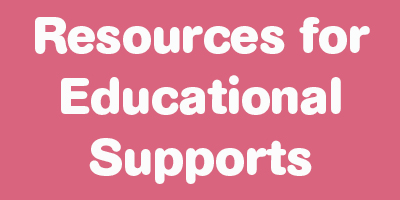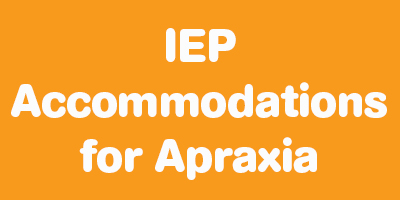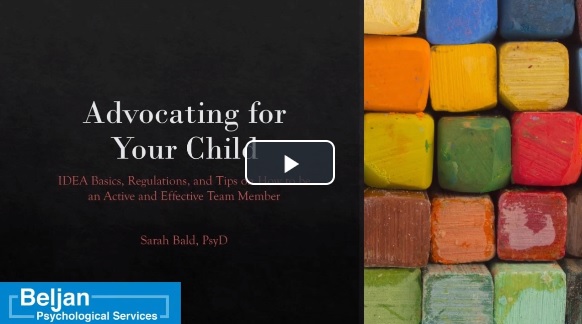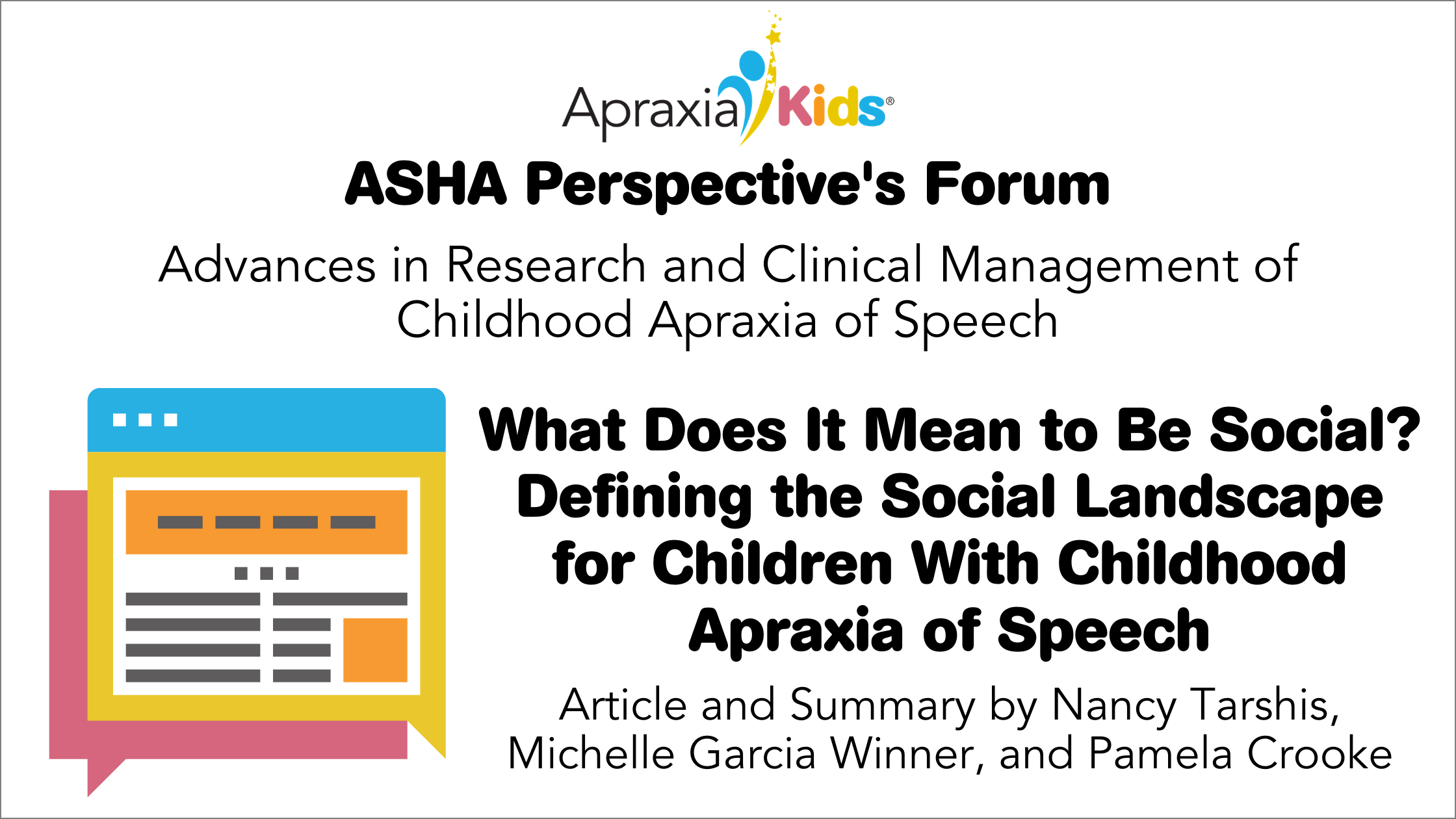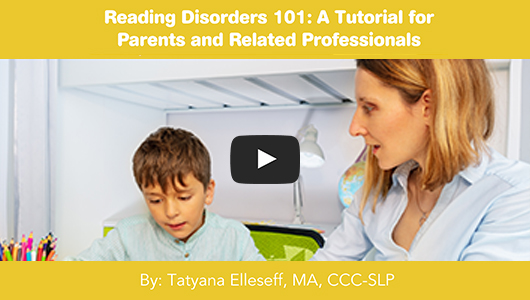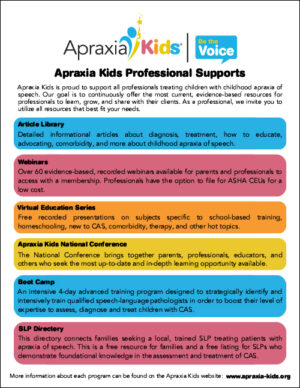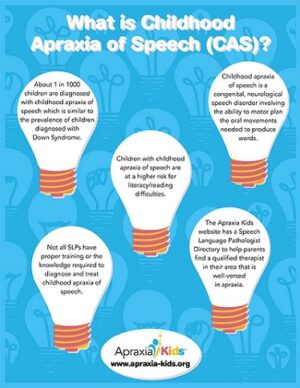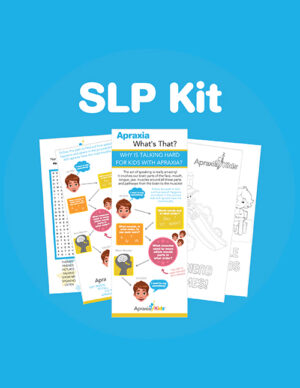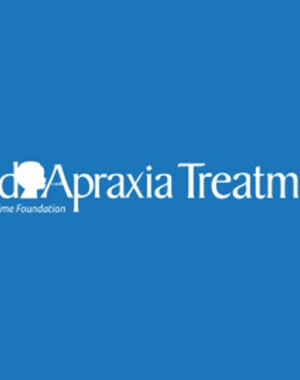Grades K-3

Speech Therapy/Diagnosis
Working on Prosody and Coarticulation
Some children who have had articulation or motor planning therapy without focusing on coarticulation and prosody can sound “different” even though they can make all of the developmentally appropriate sounds in isolation and simple words. As a child becomes more skilled at putting longer sequences together for sentences, the shift of therapy might need to change to address putting together appropriate stress, articulation and smoothness into their speech to improve intelligibility.
This might require a different approach such as ReST which works on the smoothness and stress of words as well as articulation of multisyllable nonsense words. Or maybe the child is now displaying multiple phonological patterns such as deleting final consonants (saying “rai” instead of “rain”), simplifying a cluster of two consonants next to each other (saying “back” instead of “black”), substituting /w/ for /r/ (saying “wain” instead of “rain”). So therapy may work on correcting these patterns while still incorporating the principles of motor learning and multi-sensory cuing. Once the child is saying multi-syllable words and multi word sentences, the stress on, and within words becomes important. The difference in how we say the word “record” in these two sentences is all about which syllable is stressed:
I like the third song on that record. (stress in on the first syllable)
I want to record my new song. (stress in on the second syllable)
Likewise, what word in a sentence that is stressed can change the meaning of the sentence.
I like chocolate ice cream. (I like chocolate not vanilla ice cream)
I like chocolate ice cream. (I like chocolate ice cream, not chocolate cake)
Children with CAS often focus so hard on getting the correct sounds in the correct order, they end up saying words/sentences with equal stress which causes confusion for the listener.
Another area that needs to have attention is the ability to appropriately co-articulate words. For example in the phrase: “peanut butter and jelly”, if we were to pronounce every sound in the phrase, it would come out over-articulated and not smooth. Instead, we leave out sounds and soften other sounds to help the flow. It comes out like this: “peanubuderanjelly”. Some children who have had articulation therapy concentrated on saying all of the sounds in a word or phrase without focusing on coarticulation and prosody, can sound “different” even though they can make all of the developmentally appropriate sounds.
The other area that often still needs correction is vowels. When children get to longer utterances, their vowels can become inaccurate which will reduce intelligibility. So, correction of vowel errors as they occur will become important. At this point, there may still be a few consonant sounds that are not produced accurately that will need to be worked on. Using a motor planning approach for those sounds will still be appropriate.
For More Complex Language Users

- Stay involved in the therapy sessions.
- Ask your therapist for specific things to say when coaching your child.
- Encourage your child to retry a word to get the correct one.
- Avoid automatically modeling the correct way to say the word! The harder your child has to work to come up with the right way to say the word independently, the faster the correct motor plan will stick. Your therapist should be able to suggest the types of cues that are likely to help while still teaching the child to learn to fix their errors themselves.
- Come up with a secret signal that can be used to discreetly remind your child to correct a word or sound.
- Continue to make sure all professionals involved in your child’s life are communicating and collaborating and setting the same expectations for the child.
- Ask your therapist for homework. Be honest if he/she gives you homework assignments that you do not understand or that don’t fit in your life. For example, you can ask for homework that can be done when doing school homework, while driving in the car, or over dinner. Then help your child build “practice time” into the day.
By Aubrie Hagopian, M.A., CCC-SLP
Rapid Syllable Transition Treatment (ReST)
Rapid Syllable Transition Treatment (ReST) is a program from Australia specifically for treating motor speech disorders in children who are at least 4 years of age, using two or more syllable words, and who are using several consonant and vowel sounds consistently. This handout from the University of Sydney explains the ReST program and gives links to learn more about it.
Education
Schooling Options
Parents have varying options depending on where they live for the education of their child. And as their child grows and develops, they may need different options. Here is an explanation of the basic types of schooling options.
What is an IEP?
What if My Child No Longer Qualifies for an IEP?
Sometimes children “graduate” from speech therapy as their articulation is age appropriate and very intelligible. But they may still need some supports in their classroom. A 504 plan can help bridge the gap from speech therapy to no services.
Support/Social
What does it mean to be social?
Bullying Prevention
Bullying is specifically defined and not all aggressive acts are considered to be bullying. Children with disabilities are at higher risk of being bullied. Read more about what is considered to be bullying and what can be done to prevent it.
Making Friends
We now have over 15 books on our children’s book list that talk about some aspect of a child having CAS. There are also books about communication challenges and socio emotional wellbeing that are helpful to read to children. Parents can also order a free Apraxia Kids Classroom Kit that has information, activities and cards for your child’s class. These books and activities are great to read to your child’s classroom in order to help classmates understand why talking is hard for your child and what they can do to help. Work with your child’s teacher to choose a day for you to come in and talk about CAS with the class at the beginning of the school year or when needed to help others understand CAS.
Also work with your child’s teacher to identify 1 or 2 children in the class who could be buddies for your child. They can be encouraged to sit with them during lunch and pair up with them during classroom activities. Encourage the teacher to help your child be a leader during activities that your child has strong skills such as art, dance or other movement activities. Share the School Based Professionals brochure with all school personnel.
Have playdates with 1 or 2 other children from your child’s class to go to the park or to your house to engage in a structured activity – cooking, arts and crafts, or put on a play. Success in these types of activities will lead to developing shared interests for future play.
Helping the class understand your child and that we all have strengths and weaknesses as well as how to be a friend will go a long way to making the classroom an inclusive place for all children. Having 1 or 2 friends in the class will also help your child feel they are a part of the classroom and have someone to stand up with them which will help prevent bullying.
Mental Health
Mental Health is important for all stages of development through adulthood. This article gives information and resources on how you can help your child and yourself have good emotional, psychological and social well-being.
Developmental, Academic, and Learning Challenges
Neuropsychological Testing FAQ
Once a child begins attending school, testing is completed to determine strengths and areas of needs to help determine appropriate services. Initial testing is usually done as the child turns 3 years old, but once they enter kindergarten, more in-depth testing of academic and cognitive skills can be completed.
Neuropsychological testing is a wide range of tests, surveys, and activities, normally administered by a psychologist or specific therapist, which can be used to reveal academic, behavioral, communication, and cognitive strengths or challenges. What tests that are administered to a child depend on their age and the areas of concern.
For children who are 3 years of age or older, the school district should provide testing in all areas of concern for that child. This includes communication, cognition, behavior, and gross and fine motor. Because the child is so young, the testing is based mostly on observations, surveys and completing some activities with the child. Once the child becomes school age (kindergarten) additional testing is done to see what strengths and challenges the child has in academic and cognitive areas. However, learning disabilities may not be identified until the child is older. Academic and cognitive testing is more accurate and provides more useful information if the child is 5 years old or above. Parents can also seek testing with outside agencies (see below “How Can I Obtain an Independent Evaluation”).
Neuropsychological testing should be repeated every 2-3 years. Often it is done as a child is entering kindergarten and then every 3 years after that. If significant changes occur or the results are not thought to be accurate, then testing can be requested before the 3 year mark.
Neuropsychological testing can be helpful for IEP goals because IEP goals are developed based on a demonstrated need. Results from these tests can guide the IEP team in creating appropriate goals. For example, if a child’s performance on the decoding section of a neuropsychological test is well below average, the IEP team can create a reading fluency goal for them to address the deficit. These assessments can also help guide specific speech and language goals as well.
Yes! Neuropsychological testing can help identify challenges in academic areas such as math and reading, and with specific skills like memory and repetition. These tests can be used to help diagnose specific learning disabilities that are sometimes comorbid with CAS. Certain tests can also reveal behavior difficulties and provide evidence for processing disorders like SPD (sensory processing disorder), APD (auditory processing disorder), or attention disorders like ADHD (attention deficit hyperactivity disorder).
This depends on what tests the school is using and what your areas of concern are. Make sure you are clear about all of your areas of concern when talking to the school. If you have communication, academic, and behavioral concerns, that should require several tests to be done, possibly by different people. Ask which tests the school plans to use and what each assessment covers. Popular tests like the Woodcock Johnson and Wechsler Individual Achievement Test (WIAT) specifically measure academic skills, while tests like the Behavior Assessment System for Children (BASC) measure behavioral skills and focus.
If the school does not complete the testing you are asking for or if you do not agree with an evaluation done by your school, you can obtain an individual educational evaluation (IEE). The school district must provide you with information on how to obtain an IEE, and they should be required to cover the expense.
Language Processing/Comprehension
Children with CAS can also have language processing difficulties which includes their ability to follow new or multi-step directions, understand longer or more complex sentences, and follow conversations. These symptoms may not show themselves until the child becomes older and is expected to understand more sophisticated language in the classroom.
Childhood Apraxia of Speech and Literacy Problems
Literacy problems are a common concern for families of children and adolescents with childhood apraxia of speech. We know that children with speech and language difficulties, such as CAS, are at-risk for associated literacy problems.
This webinar provides an overview regarding the nature of reading disorders to parents of children with motor speech sound disorders. It reviews current controversies with respect to the dyslexia diagnosis, explains how reading-related deficits can manifest in children, reviews select appropriate assessments for literacy evaluation purposes, as well as briefly discusses the strengths and limitations of popular reading programs.
Why Some Children Hate to Write
Handwriting is a skill that requires fine motor skills, perceptual skills as well as language skills. Just like with speech, we learn motor plans for making letters and going from one letter to the next. The inability to write can cause a cascade of academic, self-esteem and social issues.
Resources
Links for your child’s SLP
School-based Training for Speech Pathologists
School-based speech pathologists evaluate, diagnose, and treat a diverse variety of disorders in the schools. Childhood apraxia of speech is one of those disorders which is frequently not adequately addressed in graduate programs. These sessions will offer ongoing training in a variety of ages to help school-based therapists recognize and treat children with apraxia of speech.
Resources for Parents
Apraxia Books

This list of books for parents, children and professionals has been compiled by the apraxia community. It includes books to help with sound practice, stories about children dealing with speech difficulties and books to inform parents and professionals about childhood apraxia of speech.
Summer Camp List

Children with apraxia can enjoy summer camp while still working on their speech skills in fun, new ways. Each year, we collect some ideas for summer camps and programs that include a speech and language component to help children with apraxia continue to make progress and practice. You can find dates, locations, prices, and more program details on each of these programs’ websites.
Brochures and Printables

Make spreading awareness of childhood apraxia of speech easy with printable letters, brochures, cards, and more!
Homeschooling

Making decisions about the best schooling choices for your family can be overwhelming. In this track you will find topics like schooling options, homeschooling, special education, work/school/home life balance, and incorporating speech into your schooling at home.
IEP Resource Guide

The world of IEPs and 504s and all of the other alphabet soup of special education can be overwhelming and very confusing! There’s tons of helpful information out there, but even that can be difficult to navigate. Apraxia Kids has compiled this guide about IEPs to help you navigate this process!
Available Services for Children with Disabilities
Most states have websites with information in that state on services available for parents of children with disabilities. The one below in Massachusetts provides parent training and information to help families with children with disabilities from birth to adulthood in the areas of education, transitions, and family engagement among others. Parents should search for sites in their state.
